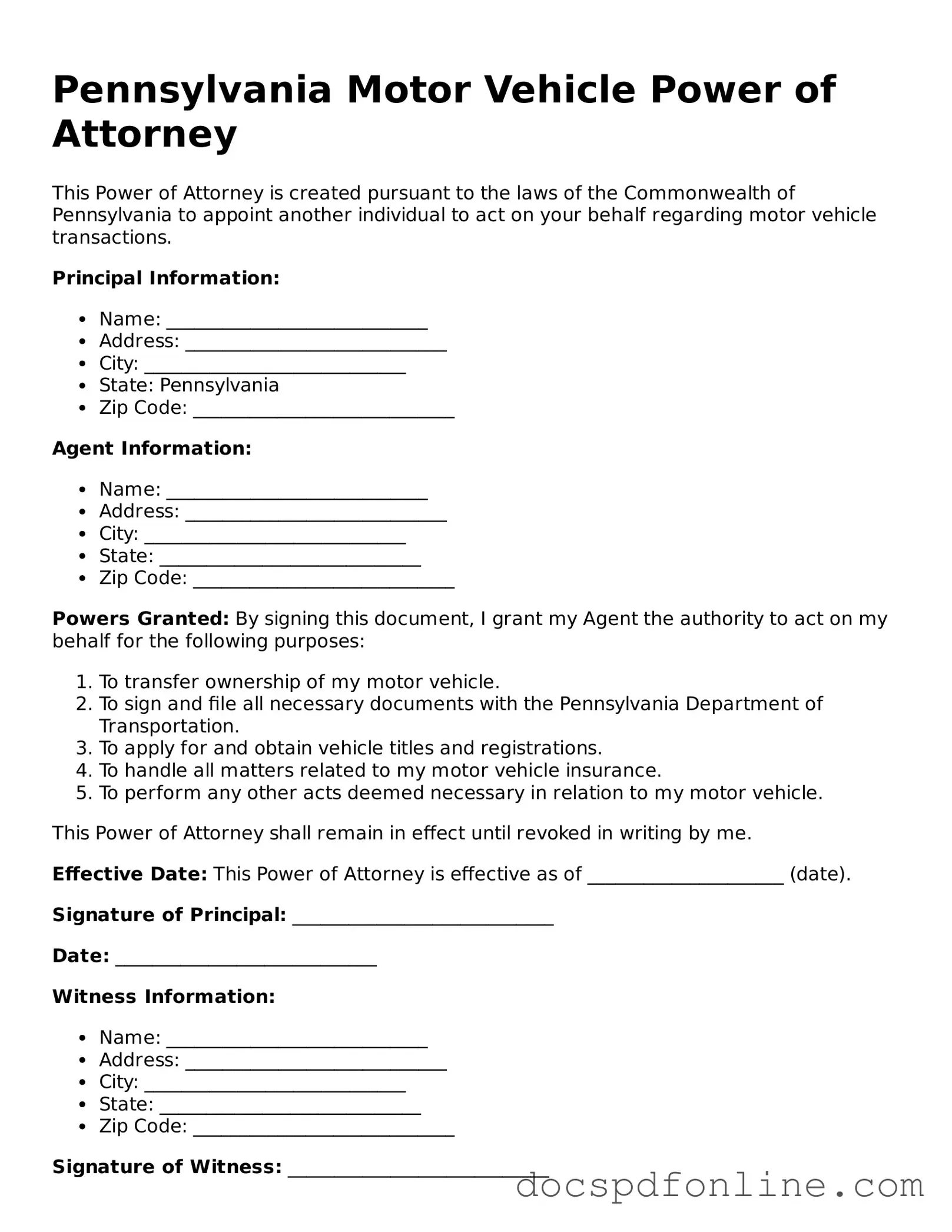Legal Motor Vehicle Power of Attorney Template for Pennsylvania
The Pennsylvania Motor Vehicle Power of Attorney form is a legal document that allows an individual to designate someone else to handle specific motor vehicle transactions on their behalf. This form is particularly useful when the vehicle owner cannot be present to complete necessary paperwork, such as title transfers or registration renewals. By granting this authority, individuals can ensure that their vehicle-related matters are managed efficiently and effectively.
Launch Editor Now

Legal Motor Vehicle Power of Attorney Template for Pennsylvania
Launch Editor Now
Save time — finish this form fast
Finish Motor Vehicle Power of Attorney online — edit, save, download made easy.
Launch Editor Now
or
↓ PDF File
